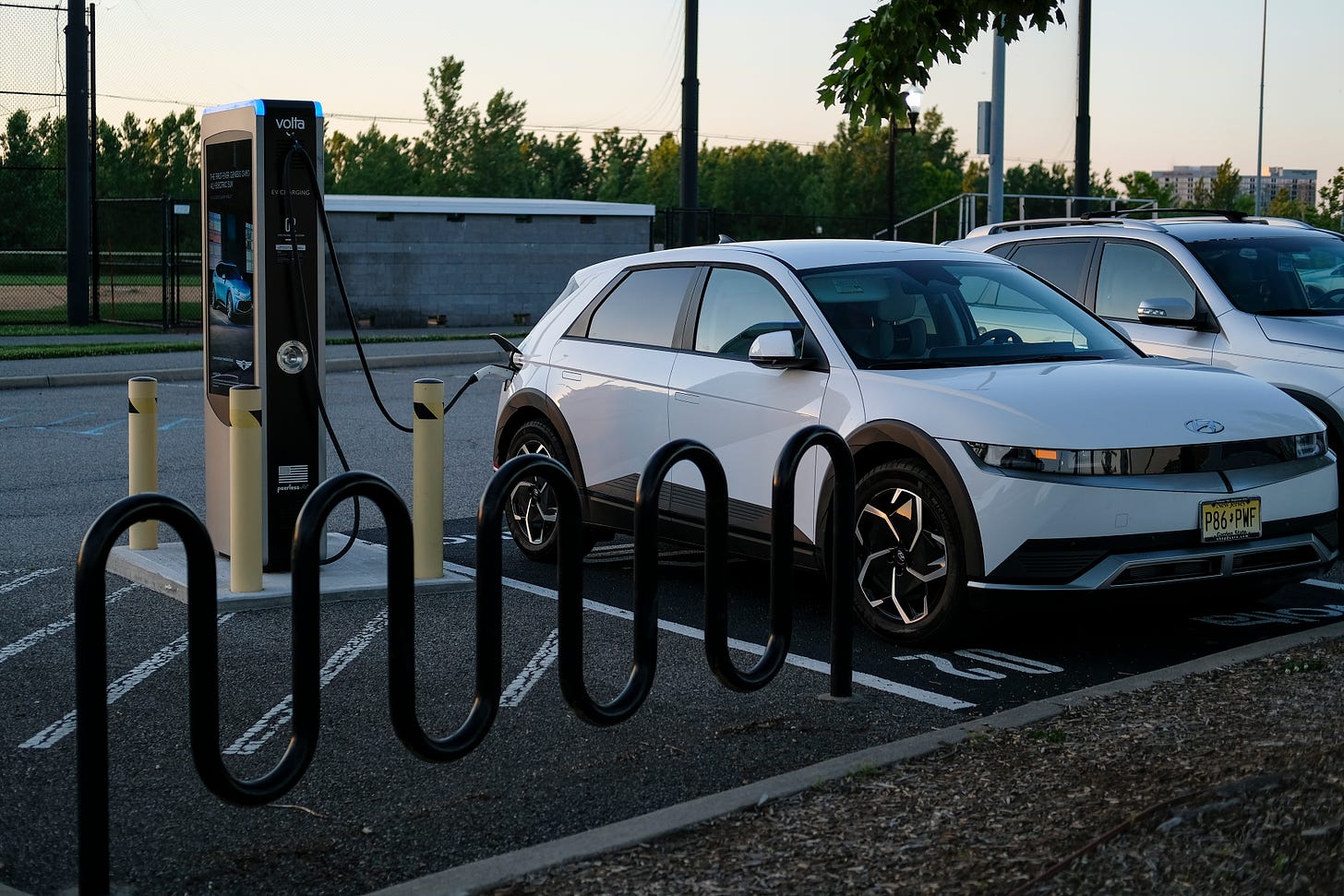TL(PM) DIGEST: Debt ceiling follies continue in the House
Plus the bumpy road to the electrification of America, the long war against fentanyl, and a new nuclear agreement between the U.S. and South Korea

1. House Republicans’ ideological wishlist won’t salvage America’s credit—or its credibility
What happened? The Republican-led House of Representatives barely passed a bill to lift the debt ceiling for one year—a move that came along with spending caps and cuts related to clean energy as well as new work requirements for Medicaid and other safety net programs.
Why does it matter? The bulk of this bill is not related to the debt ceiling and is dead-on-arrival in the Democratic-led Senate regardless. As ABC News reports:
If enacted, the bill would increase the debt limit by $1.5 trillion, reduce funding for federal agencies to 2022 fiscal year levels, limit growth in government spending to 1 percent per year and block various measures backed by the White House, such as federal student debt cancellation and new funding for the IRS.
This dangerous game of chicken on the debt ceiling also threatens to undercut America’s economy, which has bounced back strongly from the pandemic and is a key source of power in America’s competition with China.
TLP’s take: This Republican legislation is an ideological ransom note, not a debt ceiling bill. With the threat of default on government obligations already approved by Congress looming, House Republicans have attached a right-wing wishlist of policies they can’t pass through normal legislative processes. The Senate and President Biden should ignore these threats to pursue a clean debt ceiling bill that can pass Congress and open separate negotiations on federal budget legislation as laid out in the U.S. Constitution.
House Republicans should know by now—America always pays its debts.
2. The bumpy road to electrification
What happened? America faces shortages of electricians and electric vehicle charging stations as the Biden administration’s plans to move America off fossil fuels begin to gather steam. While one in five new automotive vehicles sold this year will be electric, for instance, but America still lacks sufficient electric vehicle charging stations to make widespread electrification a reality. Likewise, demand for electricians and other construction workers already exceeds supply—just as recent investments in infrastructure and clean energy get underway.
Why does it matter? America will need more skilled workers to make good on the promise of the Biden administration’s key policy achievements—the Bipartisan Infrastructure Law, the CHIPS and Science Act, and the Inflation Reduction Act. We’ve only just begun to make these investments, and the strains on America’s workforce are already starting to show.
TLP’s take: An increased emphasis on vocational learning will be needed to train more electricians and trade workers moving forward if America is to succeed in building out our infrastructure and transitioning away from fossil fuels. We’ll also need more skilled immigrants, making sensible immigration reform a must—however unlikely that seems at the moment.
3. Americans want more done to fight the fentanyl crisis
What happened? New data from The Economist and YouGov finds that nearly three quarters of Americans believe the federal government should be doing more to address the illegal distribution of fentanyl in the United States.
Why does it matter? Asked to pinpoint the culprits in the fentanyl crisis, Americans mostly blame “drug dealers who illegally sell fentanyl”—with 74 percent apportioning “a lot of blame”—along with more than 4 in 10 who place a lot of blame on Mexico and China.
TLP’s take: Politicians can’t agree on much of anything these days, but stopping the flow of fentanyl into American communities ought to be one thing they can cooperate on. That means more resources to stop illegal chemical shipments from China and to disrupt Mexican drug cartel production and distribution of fentanyl, more stringent and severe punishments for domestic fentanyl dealers and suppliers, and sustained interventions to treat opioid addiction and prevent it in the first place.
4. U.S. brings South Korea into nuclear decisions
What happened? President Biden and South Korean President Yoon issued a declaration yesterday in Washington that gives Seoul a seat at the table when it comes to deciding whether or not to use nuclear weapons in the event of an attack by North Korea. The Wall Street Journal reports that targeting and execution of nuclear operations would remain under U.S. control, but South Korea would have a say over whether or not the United States would use nuclear weapons to defend it in the first place.
Why does it matter? North Korea’s slow but steady advances in ballistic missiles and nuclear weapons—plus perceived American unreliability under President Trump—have led influential voices in South Korea to argue that Seoul should develop its own nuclear weapons. This agreement will ease that pressure and shore up the U.S.-South Korea alliance, all while preventing the further spread of nuclear weapons at a time when the safeguards against such proliferation appear to be breaking down.
TLP’s take: It only makes sense to give an allied government a say in military decisions that would profoundly affect their own countries. More importantly, though, this declaration will reinforces America’s alliance with South Korea at a time when cooperation between the two countries is more important than ever.
Just one more thing…
New high-resolution images of the Martian moon Deimos taken by Emirati space probe Hope indicate that the irregularly-shaped natural satellite may not be the captured asteroid scientists once thought.






